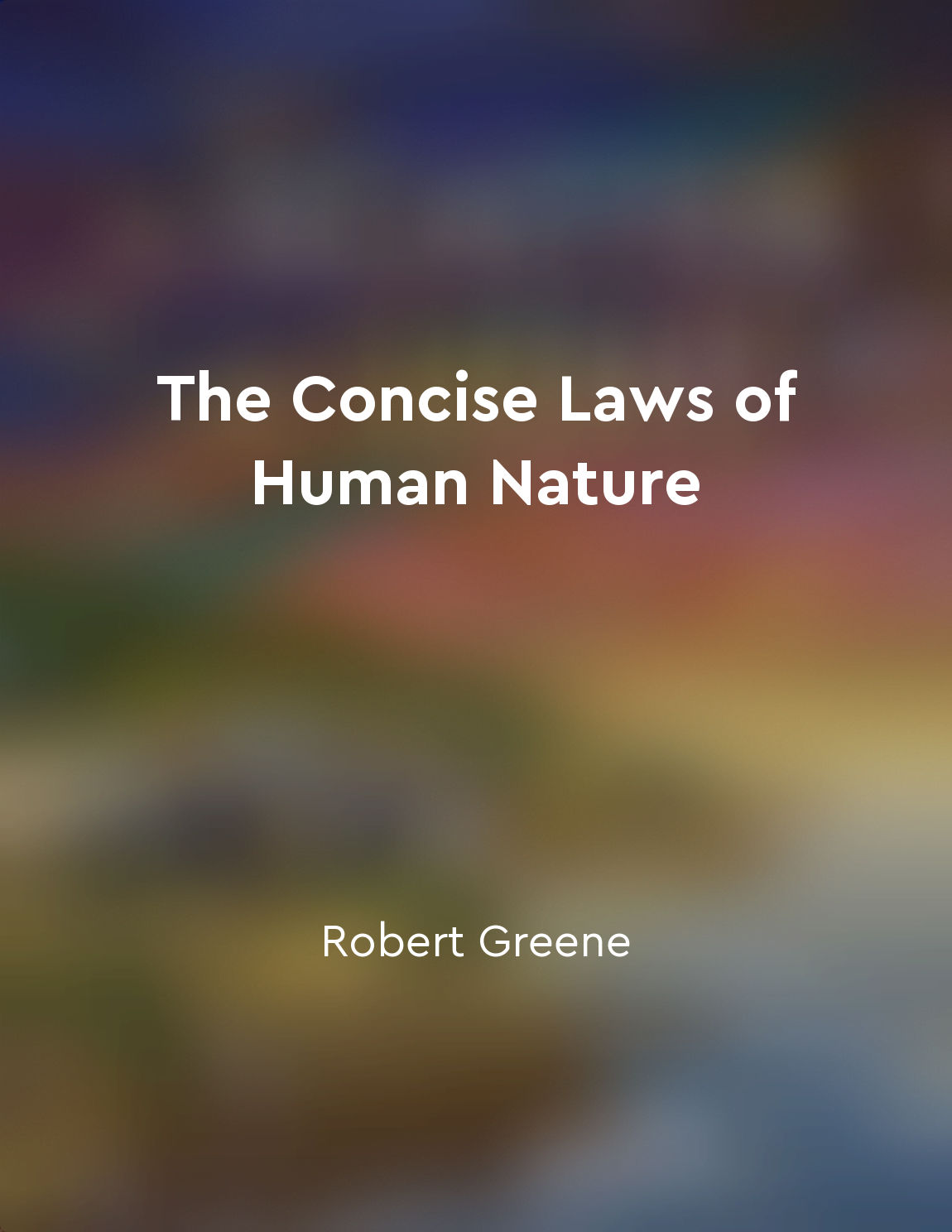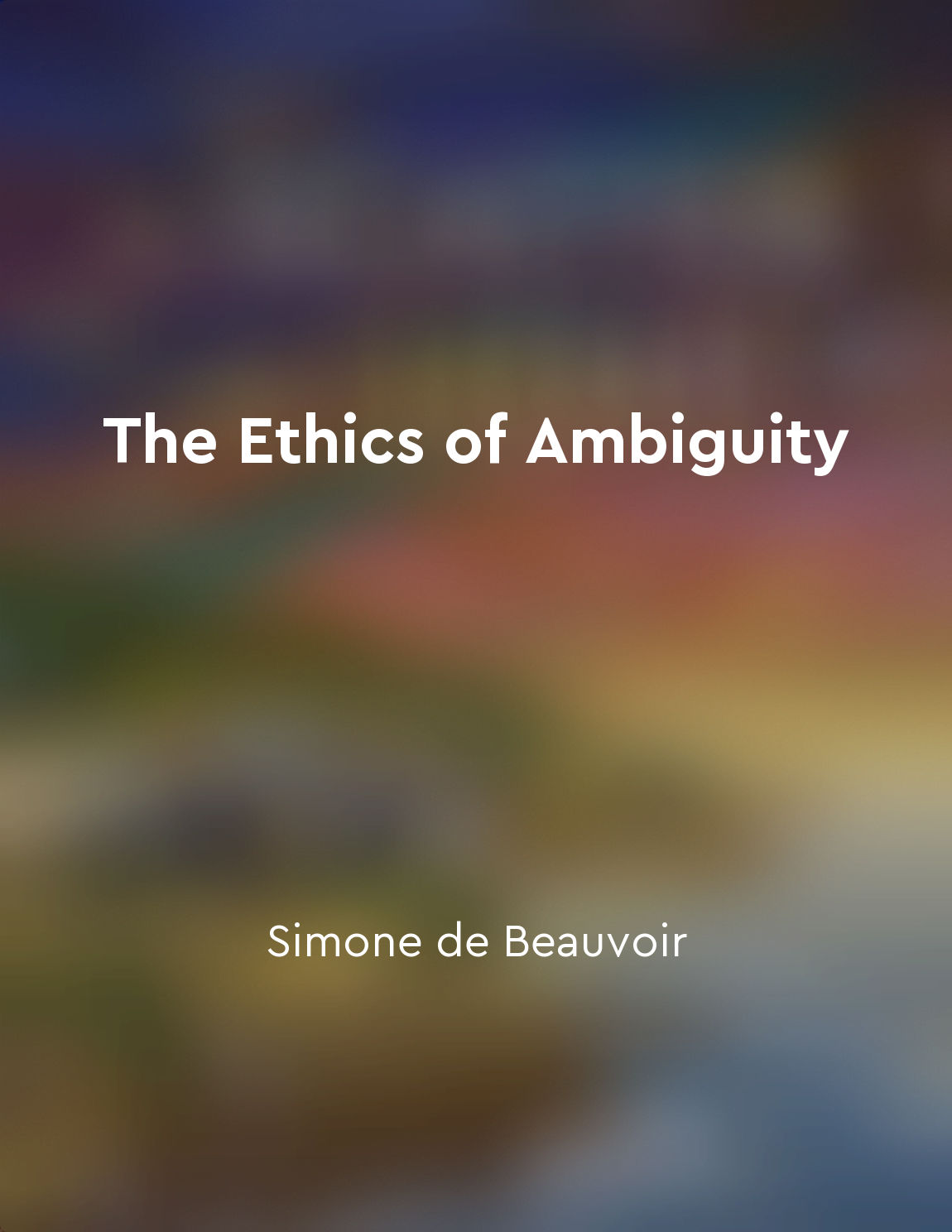Moral distinctions arise from feelings of pleasure and pain from "summary" of A Treatise of Human Nature by David Hume
When we examine the nature of moral distinctions, we find that they ultimately stem from our feelings of pleasure and pain. These feelings are the foundation upon which our moral judgments are built. It is through our experiences of pleasure and pain that we come to distinguish between actions that are morally right and morally wrong. Our feelings of pleasure and pain play a crucial role in shaping our moral sense. When we experience pleasure as a result of certain actions, we are inclined to view those actions as morally good. Conversely, when we experience pain or discomfort, we are more likely to deem those actions as morally bad. In this way, our feelings of pleasure and pain act as a guide for our moral judgments. It is important to note that these feelings are not simply individual preferences or subjective whims. Rather, they are rooted in our human nature and shared by all individuals. Our common experiences of pleasure and pain form the basis for our understanding of morality and create a sense of moral duty that is universal and objective. Through our feelings of pleasure and pain, we develop a sense of empathy and compassion towards others. When we witness someone experiencing pain, we are naturally inclined to feel empathy and a desire to alleviate their suffering. This sense of empathy forms the basis for our moral principles and guides us in making moral choices.- Our feelings of pleasure and pain are the fundamental basis for moral distinctions. They shape our moral sense, guide our moral judgments, and form the foundation of our moral principles. By recognizing the role of these feelings in morality, we can better understand the nature of moral distinctions and the principles that govern our actions.
Similar Posts

Resilience in the face of adversity is a key trait of successful individuals
In the realm of human nature, one cannot ignore the significance of resilience when faced with adversity. It is a defining trai...
Finding balance in all aspects of life is essential for overall wellbeing
In the pursuit of wellbeing, one must strive to maintain equilibrium in all facets of life. Just as a tightrope walker must car...
Authenticity in one's beliefs fosters a sense of purpose
In a world devoid of any ultimate meaning or purpose, the notion of authenticity in one's beliefs takes on a heightened signifi...

The pursuit of authenticity requires constant vigilance
In the quest for authenticity, one must always be on guard. Authenticity is not a fixed state that one can achieve and then for...

Faith is not a reliable path to knowledge
Faith is not a reliable path to knowledge. One of the main reasons for this is that faith is not based on evidence or reason. B...
Temptation luring innocent souls astray
The allure of temptation is a powerful force that has the ability to lead even the most innocent souls down a treacherous path....
Understanding the factors that influence behavior can help us create a more compassionate and just society
To truly understand human behavior, we must delve deep into the myriad of factors that influence our actions. These influences ...
Morality is based on rational principles that transcend individual desires and inclinations
In moral philosophy, it is essential to understand that morality is not simply a matter of individual desires or inclinations. ...
Overcoming obstacles crucial to moral development
In the journey of moral development, obstacles play a crucial role. These obstacles are not mere hindrances but rather catalyst...

The light of reason can dispel the darkness of ignorance and superstition
Reason, my dear friend, is the only source from which we can derive knowledge and understanding. It is the light that shines th...

